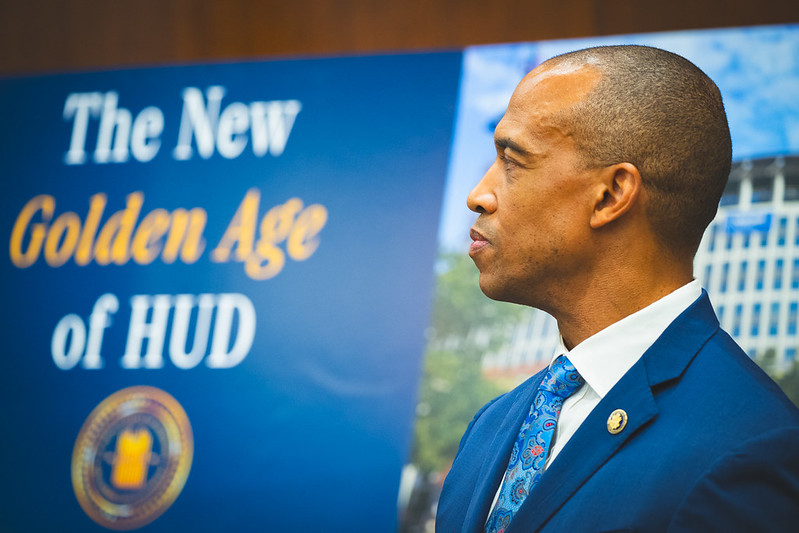By Bydaniel Parra,Daniel Parra
Copyright citylimits

New Yorkers speak over 800 languages, and more than 350,000 city households participate in HUD programs. But advocates say many local tenants won’t be greatly affected by the change, since city and state agencies that administer HUD’s programs have robust language options.
In March, President Donald Trump designated English as the country’s primary language through an executive order.
While Trump’s order does not require federal government agencies to stop offering translated documents and translation options, it opened the door for agencies to decide whether or not to provide these services.
On Aug. 19, the U.S. Department of Housing and Urban Development (HUD) became one of the first to implement an English-only policy for all departmental business and services, phasing out its materials in other languages.
When asked to specify which materials are covered by the new policy, a HUD spokesperson said that all non-English materials are being replaced by English versions.
In addition, the department will stop translation contract services for communications, while all paper and online materials in languages other than English will be taken down.
“All HUD-funded facilities have been directed to remove all printed or digital collateral,” a HUD spokesperson said. “As of September 2025, more than 3,200 foreign language webpages, documents and videos have been removed across all of HUD’s websites.”
According to HUD, the decision will help create a “sense of unity in HUD-funded facilities and redirect resources” toward other departmental needs.
AFGE Local 476, the union representing HUD’s workers, slammed the move in a social media statement, calling the change “discriminatory” and “illegal.”
“For the people HUD serves, this is devastating. Millions of tenants, applicants, & survivors of violence need language access,” the union wrote on the website X. “Denying it could shut people out of housing & services they’re entitled to by law.”
In New York City, where residents speak over 800 languages other than English, more than 350,000 households participate in HUD housing programs. That includes those who use Section 8 housing vouchers, project based rental assistance, or who live in NYCHA public housing under Section 9.
Local advocates have watched the transition occur on the HUD’s website over the last few weeks.
They reassured that many local tenants won’t be greatly affected by the change, since New York agencies that administer most of HUD’s programs have robust language options.
“This policy impacts HUD communications, and generally our clients will rely on communications, forms, and so on from local agencies, not directly from HUD,” said Anna Luft, project director of the New York Legal Assistance Group’s Public Housing Justice Project.
But, “the people who will be directly impacted by this are people who are living in buildings that are directly subsidized by HUD, such as project-based Section 8,” Luft noted.
Unlike traditional tenant-based vouchers, in a project-based building, the assistance is tied to the property, not the resident. Unfortunately, Luft explained, HUD’s policy change places an unnecessary burden on those who live in such buildings or apply for them.
“It will make it more difficult for them to comply with HUD’s rules and introduce housing instability into families who might otherwise not experience it,” she said.
The change comes on the heels of other shifts at the federal housing agency under the Trump administration, which is pursuing major cuts to housing assistance programs.
The New York Times also reported this week that the administration is scaling back enforcement of the Fair Housing Act, which prohibits discrimination by landlords and real estate brokers based on race, religion and other factors.
While HUD’s new policy doesn’t require Public Housing Authorities (PHAs) to revoke their own multi-language policies, it gives them an option if local law doesn’t require materials to be translated beyond English.
New York City’s Department of Housing Preservation & Development (HPD), which administers a Section 8 program, stated that it will continue to provide multilingual access.
“In accordance with local law, HPD provides language access services and support to all New Yorkers,” an HPD spokesperson said.
Advocates advised that New Yorkers call 311 to file a complaint if they run into issues.
“Anything that reduces the language access capacity is going to have at least a marginal negative impact of immigrant communities and the city housing ecosystem to connect effectively with each other,” said John Mollenkopf, who is the director of CUNY Center for Urban Research.
In 2007, the Center studied how language barriers shut immigrant New Yorkers out of critical city housing services.
“Having HUD be English-only is ridiculous in a city where, according to the latest Census numbers, half the people speak a language other than English at home and a bit more than one in 10 do not speak English at all or speak it poorly,” Mollenkopf added.
To reach the reporter behind this story, contact [email protected]. To reach the editor, contact [email protected]
Want to republish this story? Find City Limits’ reprint policy here.



